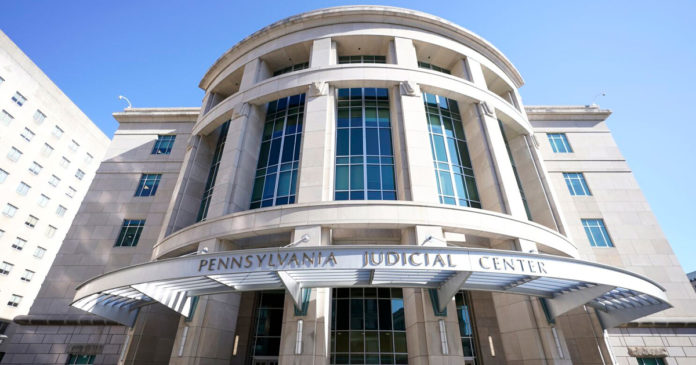
HARRISBURG, Pa. — Pennsylvania is the latest state where the public school funding system was found to be unconstitutional, but the experience in other states suggests there’s no guarantee of swift, significant or longstanding change for the poorer school districts that sued in hopes of getting billions of dollars more for their budgets.
Tuesday’s ruling after nearly a decade in the courts was hailed by supporters as a “historic” judgment on what they call a broken and discriminatory system that has long favored the wealthy.
An appeal is possible within 30 days.
If the decision survives, it should have at least some impact on school budgets, since lawmakers elsewhere have generally responded with additional funding when confronted by a judge, according to scholars who have studied similar litigation in dozens of states.
In nearly every one of those cases, however, lawmakers did not approve enough extra funding to be fully compliant with judges’ orders, said Joshua Weishart, a West Virginia University law professor who specializes in education rights.
Lawmakers can be recalcitrant, forcing cases to drag on for years or decades. Some plaintiffs have returned to court multiple times, sometimes in vain, to seek help in forcing legislatures to act, scholars say.
The cases can also be complicated by economic, political and other factors, and courts can tire of trying to force compliance.
For instance a recession could drain a state’s treasury and, with it, the political will to follow through on a judge’s order. Elections can install new lawmakers, governors or judges who are hostile to funding changes. Sometimes lawmakers make strides, but then backslide, scholars say.
So the Pennsylvania judge’s “nudge” to legislators is only one piece in a larger puzzle that is necessary to solve such a big problem, said Bruce Baker, a University of Miami education professor who researches public school financing.
“The judicial nudge I think matters, but it matters more when the other pieces are in place to enable reform to be implemented and sustained,» Baker said.
It also matters how big the problem is, Baker said.
In Pennsylvania — which Baker has found to be the most inequitable state for school funding, along with Illinois — the cost of addressing funding disparities will be high compared with other states because it means dealing with huge gaps involving big school districts like Philadelphia, Allentown and Reading, Baker said.
The plaintiffs in the lawsuit, which included six school districts, the NAACP and the Pennsylvania Association of Rural and Small Schools, presented evidence at trial that state schools are underfunded by $4.6 billion, an estimate they said does not account for spending on special education and school buildings.
They also urged the state’s divided Legislature and newly elected Democratic Gov. Josh Shapiro to act quickly.
However, Commonwealth Court Judge Renee Cohn Jubelirer did not direct the Legislature on how much aid to distribute, or how, or give a deadline.
As state attorney general last year, Shapiro filed a brief supporting the lawsuit’s aims and pledged on the campaign trail to “fully fund” schools.
He must present his first budget plan to lawmakers in less than four weeks, and plaintiffs’ lawyers hope it will include a significant sum for poorer public schools as a step towards complying with the court’s order. Shapiro has given little indication as to how he will respond, however.
Top Republican lawmakers, who opposed the lawsuit, have not said whether they will appeal, but have shown no willingness thus far to follow the ruling. The House Republican floor leader, Rep. Bryan Cutler of Lancaster County, accused the court on Wednesday of overstepping its bounds.
Plaintiffs’ lawyers said they will work with Shapiro and legislators to develop a plan that the court will approve. But they also acknowledged that it is up to lawmakers to act.
“If they don’t, frankly it’s hard to predict how long it will take,” said Michael Churchill of the nonprofit Public Interest Law Center, which helped represent the plaintiffs. «All we can say is we will act to get an expeditious remedy as fast as we can.”






